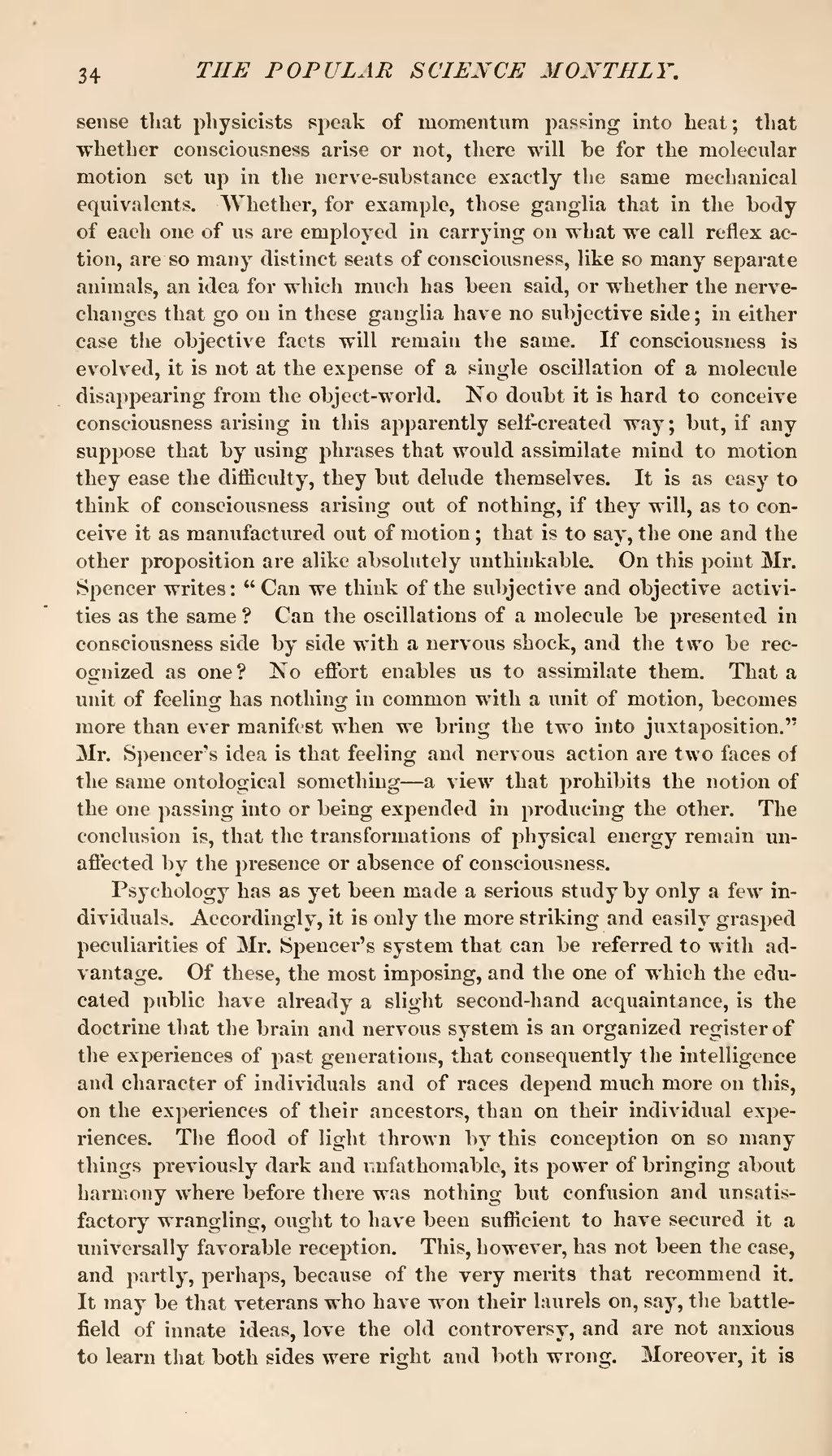sense that physicists speak of momentum passing into heat; that whether consciousness arise or not, there will be for the molecular motion set up in the nerve-substance exactly the same mechanical equivalents. Whether, for example, those ganglia that in the body of each one of us are employed in carrying on what we call reflex action, are so many distinct seats of consciousness, like so many separate animals, an idea for which much has been said, or whether the nerve-changes that go on in these ganglia have no subjective side; in either case the objective facts will remain the same. If consciousness is evolved, it is not at the expense of a single oscillation of a molecule disappearing from the object-world. No doubt it is hard to conceive consciousness arising in this apparently self-created way; but, if any suppose that by using phrases that would assimilate mind to motion they ease the difficulty, they but delude themselves. It is as easy to think of consciousness arising out of nothing, if they will, as to conceive it as manufactured out of motion; that is to say, the one and the other proposition are alike absolutely unthinkable. On this point Mr. Spencer writes: "Can we think of the subjective and objective activities as the same? Can the oscillations of a molecule be presented in consciousness side by side with a nervous shock, and the two be recognized as one? No effort enables us to assimilate them. That a unit of feeling: has nothing in common with a unit of motion, becomes more than ever manifest when we bring the two into juxtaposition." Mr. Spencer's idea is that feeling and nervous action are two faces of the same ontological something—a view that prohibits the notion of the one passing into or being expended in producing the other. The conclusion is, that the transformations of physical energy remain unaffected by the presence or absence of consciousness.
Psychology has as yet been made a serious study by only a few individuals. Accordingly, it is only the more striking and easily grasped peculiarities of Mr. Spencer's system that can be referred to with advantage. Of these, the most imposing, and the one of which the educated public have already a slight second-hand acquaintance, is the doctrine that the brain and nervous system is an organized register of the experiences of past generations, that consequently the intelligence and character of individuals and of races depend much more on this, on the experiences of their ancestors, than on their individual experiences. The flood of light thrown by this conception on so many things previously dark and unfathomable, its power of bringing about harmony where before there was nothing but confusion and unsatisfactory wrangling, ought to have been sufficient to have secured it a universally favorable reception. This, however, has not been the case, and partly, perhaps, because of the very merits that recommend it. It may be that veterans who have won their laurels on, say, the battle-field of innate ideas, love the old controversy, and are not anxious to learn that both sides were right and both wrong. Moreover, it is
